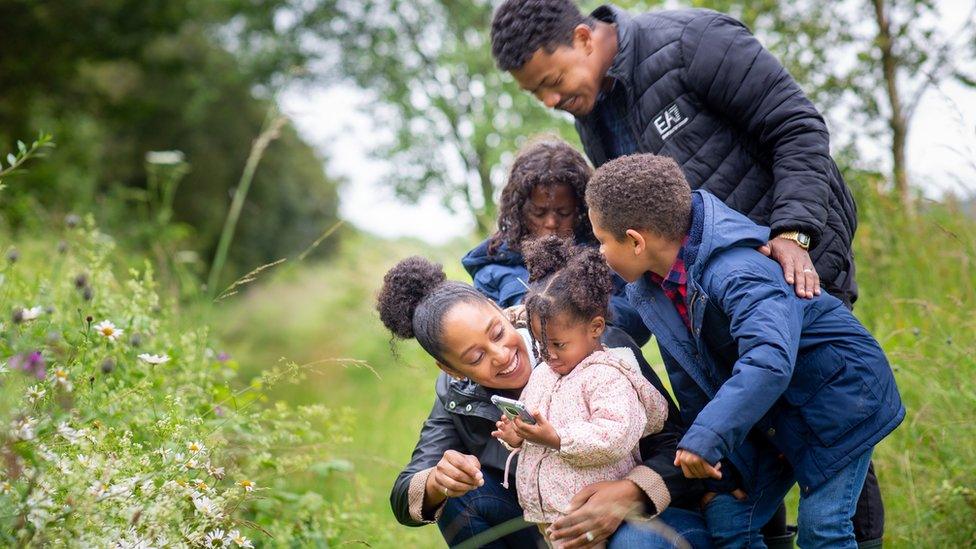Big Butterfly Count: Butterfly Conservation are asking people to count butterflies
- Published
- comments

It's the Big Butterfly Count.
Over the next three weeks people are being asked to count the butterflies they see, as part of a way to protect species from extinction.
Research by the charity, Butterfly Conservation, found that half of Britain's remaining butterfly species are now under threat.
The data collected from the public can help scientists understand how changes in the environment, such as climate change, are affecting different types of butterflies.
Why is the count important?
Numbers of the small tortoiseshell butterflies have been in decline for years
Last year, there were more than 150,000 counts submitted to the Big Butterfly Count and it saw the lowest ever number of butterflies ever recorded.
Butterflies and moths are an important measure of the health of our environment.
Butterfly Conservation scientists want to know if this decline will continue again this year. They can use the data to see the impact of climate change and pollution on the species.
It's not just rare species that are at risk of extinction, but normal butterflies numbers are low too, such as the small tortoiseshell, numbers of which have fallen by 79 percent since 1976.
The charity is asking everyone across the UK to get involved.
They task is to spend 15 minutes in an outdoor space counting the amount and type of butterflies you see.
A photo taken by the Duchess of Cambridge showed her then six-year-old daughter with a Red Admiral butterfly
Lots of people will take part, including Princess Charlotte who was pictured with a Red Admiral butterfly she found near her house in Norfolk.
Taking part in the Big Butterfly Count, is just not just good for the butterflies but also good for you, says Dr Amir Khan one of the ambassadors.
Dr Khan said: "Spending time in nature is hugely beneficial to our mental health. Just a short amount of time spent in the natural world can alleviate stress, and connecting with nature can help us feel happier and more energised."
Dr Zoe Randle, senior surveys officer at Butterfly Conservation, said: "Thanks to the wonderful British public, the Big Butterfly Count is the largest natural history citizen science project involving insects in the world and provides us with a valuable snapshot of what is happening for butterflies."
Butterfly Conservation says that the count will help scientists get crucial information to understanding what is happening to the nation's butterflies. They can then put measures in place to protect them.
The results from last year helped save two species from extinction and stopped the decline of others.
Will you be taking part? What is your favourite butterfly? Let us know in the comments.
- Published16 June 2022
- Published24 July 2020
- Published8 January 2022
